Julian Eaves reviews A Day In The Death Of Joe Egg by Peter Nichols now playing at Trafalgar Studios London starring Toby Stephens and Claire Skinner
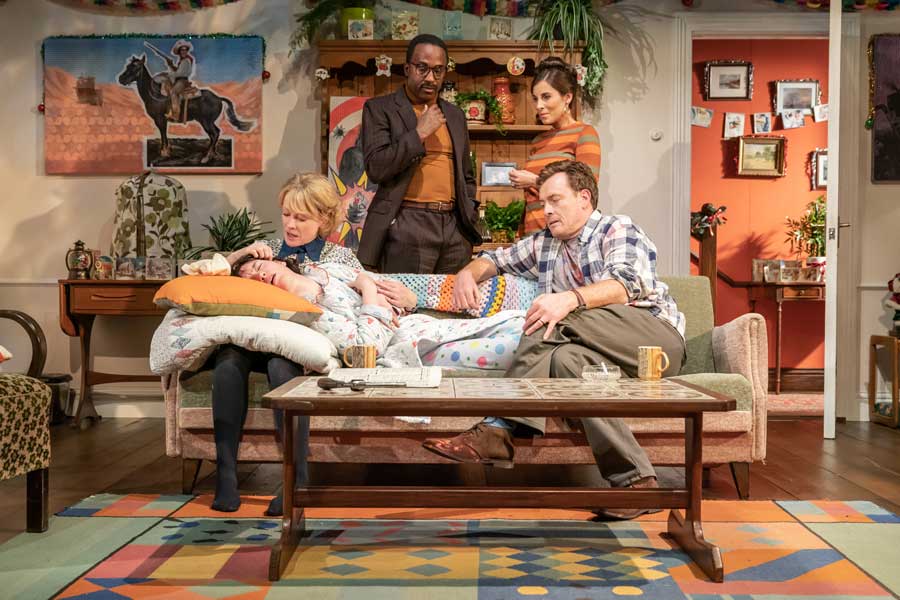
A Day In The Death Of Joe Egg
Trafalgar Studios,
2nd October 2019
3 Stars
Book Now
There is nothing that Peter Nichols (who died at the age of 92 only weeks ago) did not know about dramatic construction, pace, and dialogue that speaks easily and naturally and ‘plays’ well. This play of his from 1967 is a perfect example of how to handle the raw materials of theatrical creation and turn them into brilliantly fluid conversation and sparkling action. Director Simon Evans knows this and has a great deal more fun with this show than he did recently with the more laboured ‘The Best Man’: this is altogether a sharper, gayer, zestier experience and marks him out as a possible specialist for drama of this period.
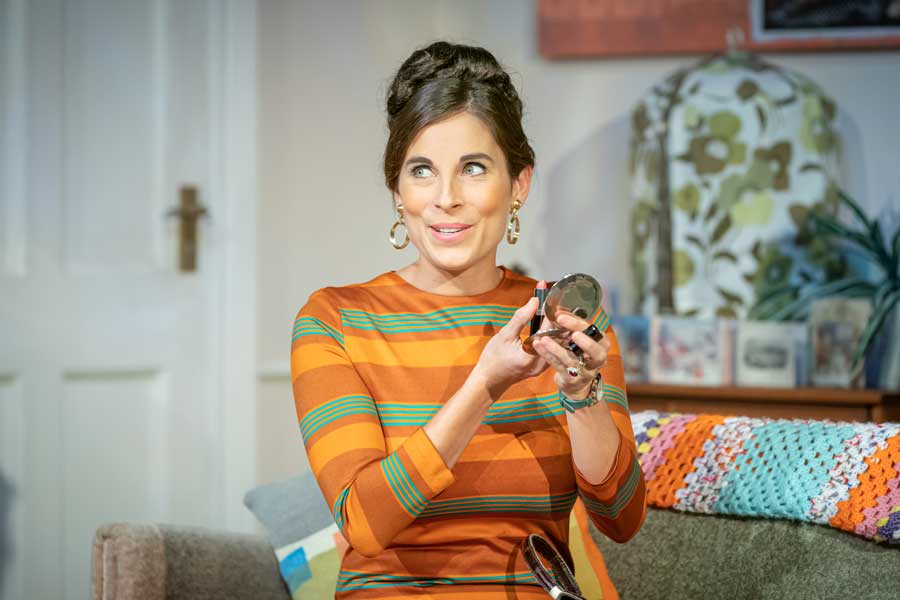
And period it is. Peter McKintosh’s design (set and costumes) is like a minor illustration from Ideal Home magazine, skewed slightly by mildly pop-art’ish illustrations on the walls, but the furniture and detailing is all perfectly right, and immaculate. This is the aspirational middle-class world of management and administration ‘at home’, served up with the same attention to detail as a colour plate of an aspic ring in Good Housekeeping. Although, when Toby Stephens – as Bri, the chief stand-in for the author in this heavily autobiographical yarn – launches the performance with an out front stand-up routine of a harassed schoolteacher shouting at a rowdy class of misbehaving children, we do begin to notice a disparity between the theatrical experimentation of the writing and the drearily literal staging from McKintosh. As the play goes on, and each character in turn – with a flick of Prema Mehta’s lights and a crash from Edward Lewis’s sound – snaps out of the ‘story’ and speaks through the fourth wall directly at the audience, we come to be increasingly uneasy about the oppressive ‘normality’ of the prettily made up box set (for all that it can revolve and slide, a bit).
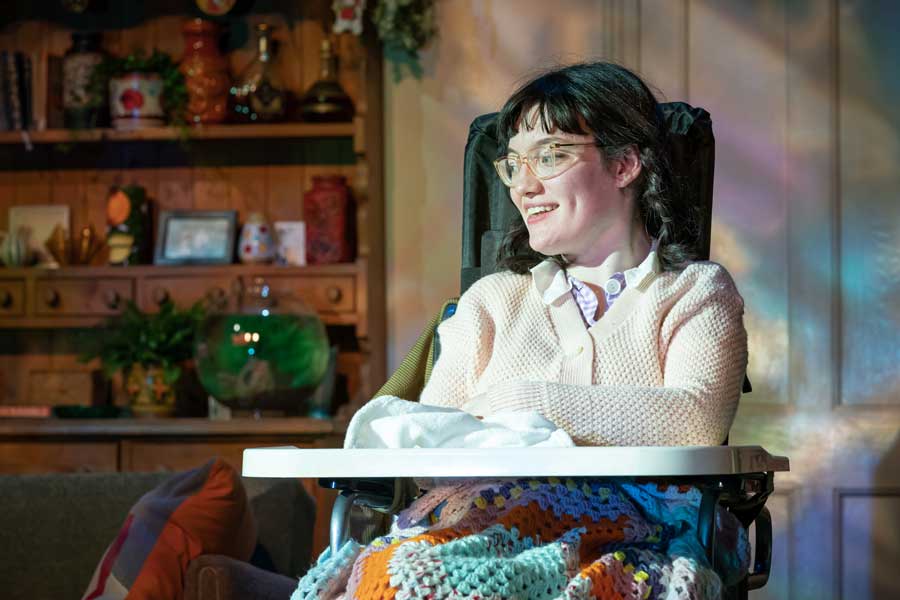
But this was ever the problem with so much British theatre. Great writing, but dismally predictable and boring design. Thus, Stephens rattles through his endless jokes and japes, but is still encased in the weeds of a by-gone era. Claire Skinner as his wife, Sheila, is cursed with having to play ‘straight’ to his interminable comic routines, but makes a virtue of this in her cool control and simple tender-heartedness. Clarence Smith, playing an evening visitor, Freddie, gets the best laugh of the show with his line – which, like nearly everything that is said, springs directly from the troubled psyche of Nichols: ‘Am I talking too loud? I always raise my voice when I’m helping people’. That is a really brilliant line, but its effect is swamped and smothered by the insufferable bourgeois charm of the living room in which it has to be delivered. Really: there are better British designs to be seen on the stage – why not here?
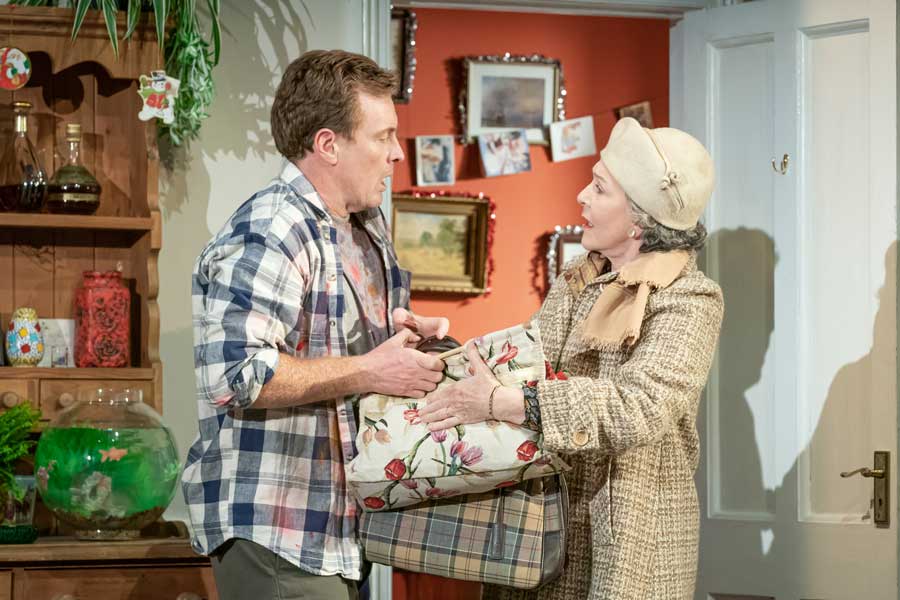
Playing his wife, Pam, Lucy Eaton has to struggle against impeccable hair (I think it might be a wig) by Carole Hancock and a gorgeous yellow coat and smart striped shift dress with knee-high tan leather boots: I mean, she looks fabulous, but why does everything around her have to look equally fabulous? The sumptuous blandness is stultifying and deadening, blunting the language and robbing it of so much of its bite. A somewhat better time is had by Patricia Hodge, who is an accomplished farceuse, and plays her second-act turn for all its worth, but perhaps it is only because she is onstage the least that she seems less engulfed by it. Of all the cast, only Storme Toolis radically departs from the cosy comfort offered everywhere else. Differently abled from the rest of the cast, she takes on the role of Bri and Sheila’s daughter, who has grown up with a complicated medical condition that is only identified by name once. Her manner of performance is so boldly different from the others that she becomes an arresting and fascinating presence before us: she uses stillness and silence, body posture, expression and gesture in ways that – on the evidence of this production – are wholly foreign to and beyond the reach of the rest of the cast.
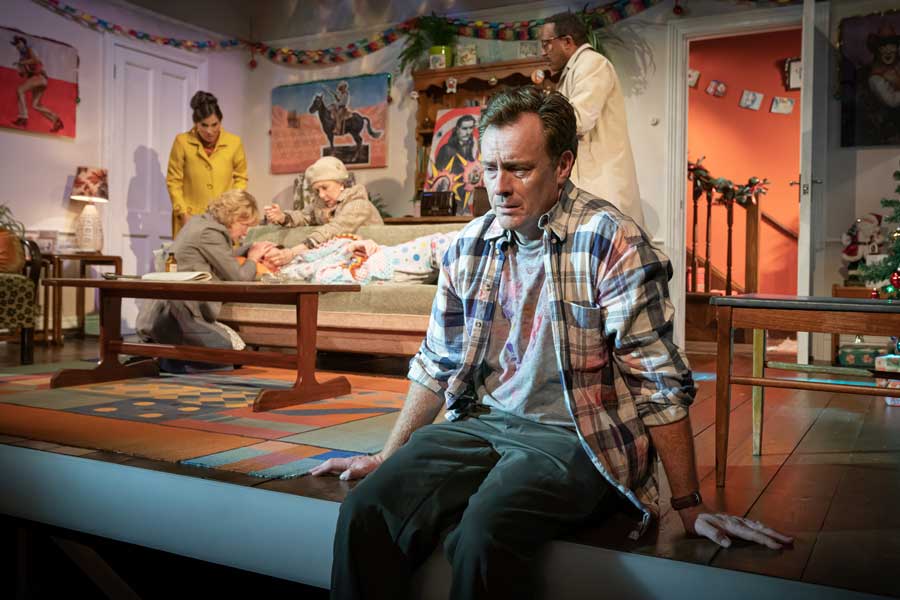
I suspect that is an erroneous impression. These are very good actors and I am quite certain that they could – if given the chance – do a great deal more than they are asked to by this director. But how often do British directors really ask actors to stretch themselves and surprise the audience? And how often do they just invite them to serve up something safe and warm, cosily reassuring and familiar? Does anybody remember Artaud? Does anyone even read him anymore? Is there anyone out there who still thinks that theatre should be exciting and edgy and risky and thrilling? Yes, there are such directors, and I have seen some of them working at this theatre, but not – alas – on this occasion. As a technical exercise in demonstrating Nichols’ perfect mastery of the form, there is nothing much to say against this; but as a drama that speaks from the heart to the heart it is, in my view, in need of a bit more openness and frankness.
